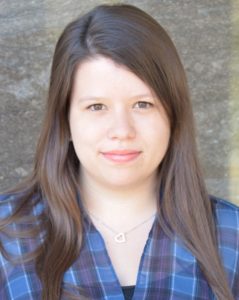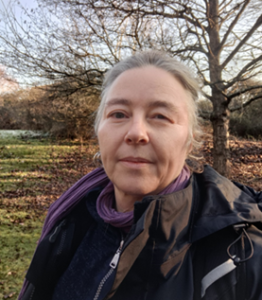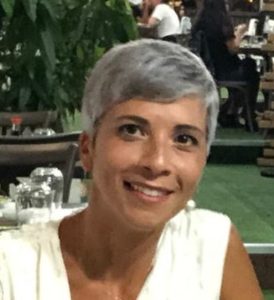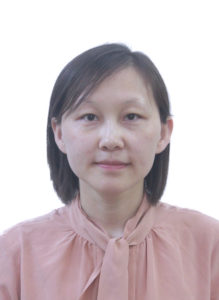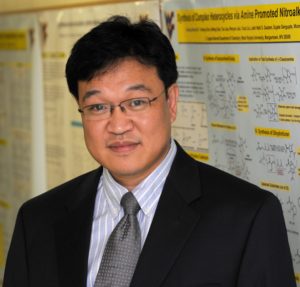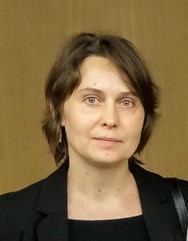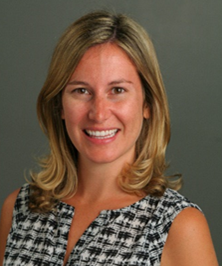To further thank and recognise the support from our excellent reviewer community, we are highlighting reviewers who have provided exceptional support to the journal over the past year.
This month, we’ll be highlighting Fiona Hatton, Bettina Lotsch, Mahesh Hariharan and Shana Sturla. We asked our reviewers a few questions about what they enjoy about reviewing, and their thoughts on how to provide a useful review.

Fiona Hatton, Loughborough University. Dr Hatton’s research interests are in sustainable polymer science, for example reducing single use plastic by focussing on reuse systems, facilitated by labelling of packaging. Within this theme she also researches renewable monomer synthesis and polymerisation using water-based techniques, with a focus on copolymer self-assembly.

Bettina Lotsch, Max Planck Institute for Solid State Research. Professor Lotsch’s research focuses on the synthesis of multifunctional materials for energy conversion and storage, including molecular frameworks (COFs and MOFs), solid-state electrolytes, and 2D materials.

Mahesh Hariharan, Indian Institute of Science Education and Research Thiruvananthapuram. Professor Hariharan’s research group focuses on understanding light-matter interactions in organic molecules and biomolecules. They work towards synthesizing novel and diverse molecular architectures, and investigating the ultrafast processes through experimental and theoretical methods.

Shana Sturla, ETH Zürich. Professor Sturla aims to understand how chemicals that are in our foods, environment or drugs influence biochemical processes. For this purpose, and to advance disease prevention and therapy, Shana develops and implements highly precise methods to track the fate of chemicals in cells.
What encouraged you to review for Chemical Science?
Bettina Lotsch: For me, reviewing is a service to the community, and I enjoy reviewing high quality papers with interdisciplinary content the most – like those submitted to Chemical Science 😉
Fiona Hatton: The journal is known for its excellent reputation and for reporting high quality science, so I was happy to review for the journal. My first two research papers from my PhD are published in Chem Sci so it has a special place in my publishing journey!
Shana Sturla: Chemical Science publishes excellent work in diverse and interdisciplinary areas of chemistry, and I have had a positive experience publishing in the journal. Therefore, I feel it is my obligation to also offer support to the review process for other authors.
What do you enjoy most about reviewing?
Mahesh Hariharan: The opportunity to contribute towards enhancing the quality of research that is made available to the scientific community makes reviewing an enjoyable activity.
Bettina Lotsch: The fact that I can share my insights with colleagues through peer-review, and help to improve or refine a manuscript before it gets published.
Shana Sturla: If I can offer suggestions for authors to improve the quality of their work.
Do you have any advice to our readers seeking publication in Chemical Science on what makes a good paper?
Mahesh Hariharan: When publishing in a top-tier journal like Chemical Science, it is important that the study is thorough and also curated into an interesting story that conveys its novelty. Good papers should further encourage readers to think in new directions.
What advice would you give a first-time author looking to maximise their chances of successful peer review?
Fiona Hatton: If I could offer one piece of advice it would be to make sure that any claims you make in the manuscript are substantiated by evidence, either experimentally or from literature – my biggest ‘bug bear’ is when data presented does not support the authors’ claims. Another would be to make sure graphs/Figures can be easily read by someone not familiar with the work and are not too busy or overloaded.
Did reviewing for Chemical Science affect how you approached preparation of your recent publication with us?
Bettina Lotsch: I do learn from reviewing in many ways. In preparing a manuscript (for Chemical Science and generally), I try to put myself in a reviewer’s shoes and reflect on its strengths and weaknesses. “What would a reviewer say?” is a very helpful question to ask when preparing a manuscript.
Tune in next month to meet our next group of #ChemSciReviewers!
If you want to learn more about how we support our reviewers, check out our Reviewer Hub.
Interested in joining our ever-growing reviewer community? Apply here now!











